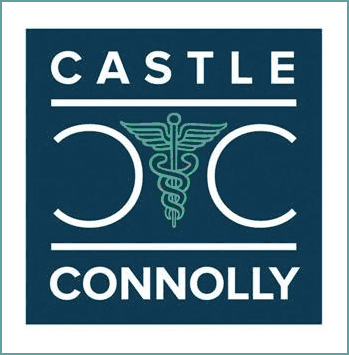Your pain is real.
Our results are, too.
At Connecticut Pain Care, we have a team of fellowship trained, board certified pain management physicians that combined have over 50 years of experience treating pain conditions.
Pain Care & Pain Management Doctors in CT
Our team includes leaders in the field of both pain & regenerative medicine. This expertise enables us to provide therapies that not only reduce your pain, but also work to heal the underlying condition. As we strive to provide the highest level of care for our patients, we also actively engage within the local, national, and international communities to educate our peers and stay up to date on the safest, most advanced treatment options available.
Our team of pain management specialists include:

Brian A. Bast, D.O.
Interventional Spine & Musculoskeletal Medicine, Pain Management, Sports Medicine
Darien, Norwalk, Westport
203‑845‑2200

Jesse Hochkeppel, M.D.
Interventional Pain Medicine Specialist
Danbury, New Milford, Southbury
203‑792‑PAIN (7246) ext 4212

David S. Kloth, M.D.
Interventional Pain Medicine Specialist
Danbury
203‑792‑PAIN (7246) ext 4214

Zachary Lans, M.D.
Interventional Pain Medicine Specialist
Norwalk
203‑845‑2200
Chronic pain is your body’s way of telling you that something is wrong.
Pain that last three months or longer is considered “chronic.” Unfortunately, the cause of chronic pain is not always clear and can be challenging to diagnose. Without accurate diagnosis, treatment is often ineffective at relieving your symptoms.

Our physicians understand this complexity and will provide you with a careful evaluation and thoughtful diagnostic work-up. This approach enables the source of your pain to be diagnosed accurately and therefore, treated most effectively. We realize that pain can arise from many different structures within the body and even careful analysis leads to a diagnosis that needs to be proven. Our skillfully performed interventional pain therapies (diagnostic nerve blocks, joint injections and other targeted procedures) not only help to alleviate your pain but can help to precisely identify the source of your symptoms.
We know how real pain is and how it can restrict an individual’s lifestyle.
At our state of the art facility, you will be carefully evaluated by one of our board-certified pain management physicians. After educating you regarding the possible causes of your symptoms, you and your physician will develop a uniquely tailored medical treatment plan specific to your needs. Realistic expectations will be provided and stressed to help you achieve an acceptable outcome. At CPC, we use a multi-modal, stepwise approach integrating physical therapy, chiropractic, medications, behavioral therapy, interventional procedures (injections), regenerative medicine, and implantable therapies (electrical stimulators and pain pumps) to optimize your outcome. Our therapeutic goals include both pain reduction as well as functional improvement. A physician will be actively engaged in your care throughout your treatment course, even with management of chronic conditions. Your pain will be taken seriously.
Frequently Asked Questions About Pain Management:
What Does a Pain Management Doctor Do?
A pain management doctor is a physician who specializes in evaluating, diagnosing, and treating pain. After earning their medical degree, pain management doctors typically complete a general residency and continue on to a yearlong fellowship that focuses on pain management. Pain management doctors usually are board-certified in a specialty, such as cancer pain or sports injuries.
Pain management doctors help patients with pain in any part of the body. Medical conditions commonly treated by pain management doctors can include:
- Arthritis
- Fibromyalgia
- Migraines
- Sciatica
- Spasticity
- Spine Pain
- Nerve Injuries
- Acute Pain
What to Expect from a Pain Management Doctor?
What is the Difference Between Acute and Chronic Pain?
Acute pain comes on suddenly and is usually caused by something. It is often a sharp feeling and doesn’t last very long (less than six months). Once the injury or condition that caused the pain is resolved, the pain will go away. Causes of acute pain include:
- Broken Bones
- Burns
- Cuts
- Surgery
- Labor and Childbirth
Chronic pain is more ongoing, and will last over six months. It may be caused by an illness or injury but continues even after you have healed from the underlying cause. Some people even suffer from chronic pain without any specific reason. Chronic pain has been known to be caused by conditions such as:
- Migraines
- Cancer
- Nerve Pain
- Back Pain
- Fibromyalgia
- Arthritis
Does Chronic Pain Count as a Disability?
Can Chronic Pain Cause High Blood Pressure?
Can Chronic Pain Cause Fatigue?
How Does Chronic Pain Affect the Brain?
What Qualifies as Chronic Pain?
What is Interventional Pain Management?
Interventional pain management is a treatment for pain that a doctor may use after a few weeks of other therapies for pain management. It may also be employed if the pain is strong enough to interfere with a person’s daily living activities. Interventional pain management may involve:
- Steroid Injections
- Nerve Blocks
- Infusions
- Spinal Cord Simulation
- Peripheral Nerve Field Stimulation
- Surgery
Interventional Treatment Options Offered: (partial listing)
- Botox injections
- Coccyx injections
- Discography
- Epidural Steroid Injections
- Facet Blocks
- Joint and musculoskeletal injections
- Lysis of Adhesions
- Minimally Invasive Lumbar Decompression (mild)
- Percutaneous Discectomy
- Peripheral nerve injections
- PRP Injection
- Radiofrequency Ablation to facets and SI joint
- Sacroiliac (SI) joint injections
- Spinal Cord Stimulators
- Spinal Drug Delivery Systems
- Stem Cell Injection
- Sympathetic blocks
- Trigger point injections
- Viscosupplementation
Call OrthoConnecticut today at 1.833.678.4628 to learn more or to schedule an appointment.



